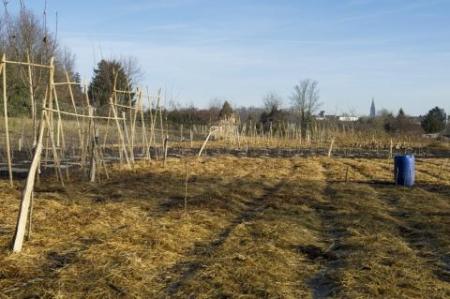
Area characterisation:
Scale of the project: city
Urban density in which the NbS is implemented: medium
Objective:
- Creation of an urban natural park as a metropolitan governance tool
- Encourage sustainable territorial development based on natural, historical and cultural heritage promotion, and eco-citizenship
- Deliver sustainable solutions at a large scale to maximize benefits for society and the environment
The action encourages sustainable territorial development based on natural, historical and cultural heritage promotion and eco-citizenship. The governance is based on a charter included in the Local Urbanism Plan and a participatory approach thanks to collaboration between local stakeholders and municipal representatives.
Financing:
Global (estimated) cost of the project: more than 5M€
Financing mechanism: cluster1 public financing
BUSINESS MODEL:
Business cluster: Organizational
Business model: Develop scale-up solutions
Based on a collaborative approach, this project allows to deliver sustainable solutions
at a large scale to maximize benefits for society and the environment.
Transferability of result:
Process enablers:
Governance drivers → cocreation and participation → ...
...
Process inhibitors:
... → ... → ...
...
Expected time for the NbS to become fully effective after its implementation: short (immediately to few months)
Feedback: Still well adapetd
Expected life time of the intervention: around 10 years
Dates for project delivered: 2016
Client:
Urban Community and city of Strasbourg
Design team:
- Urban Community and city of Strasbourg (Project manager)
- ADEUS (technical partner)
- CAUE Bas Rhin (technical partner)
Other stakeholders: citizens
GOVERNANCE MODEL:
Governance cluster: cluster5 network governance
Governance model: Collaborative governance
Contacts:
Alice Duquesnoy (alice.duquesnoy-mitjavila@plante-et-cite.fr)
Olivier Damas
Plante & Cité (https://www.plante-et-cite.fr/)
Maison du Végétal, 26 Rue Jean Dixmeras, 49000 Angers
Awards:
- Laureate "Coucours Capitale Française de la Biodiversité" 2014
(http://www.capitale-biodiversite.fr/)
NBS goals:
- Enhancing sustainable urbanization
- Restoring ecosystems and their functions
- Developing climate change adaptation
- Urban regeneration through nature-based solutions
- Nature-based solutions for improving well-being in urban areas
NBS benefits:
- Developing climate change adaptation; improving risk management and resilience
- Reducing temperature at meso or micro scale
- Developing climate change mitigation
- Carbon sequestration and storage
- Restoring ecosystems and their functions
- Greater ecological connectivity across urban regenerated sites
- Improve connectivity and functionality of green and blue infrastructures
- Increase achievements of biodiversity targets
- Increase Biodiversity
- Increase quality and quantity of green and blue infrastructures
- Enhancing sustainable urbanisation
- Changing image of the urban environment
- Increase accessibility to green open spaces
- Increase amount of green open spaces for residents
Further information:
Nature4Cities (https://www.nature4cities.eu/) aims to develop a knowledge diffusion around Nature-Based Solution (NbS) and a decision support platform through new collaborative models.
This project is part of the Nature4Cities's pioneer case studies database, it will feed the observatory, NbS pre-selection and replication tools, gathered into the Geocluster4NBS.
This project was chosen as a pioneer case study for the following reasons: the project is based on a collaborative governance, it involves citizens and municipal representatives in natural area protection, and historical and cultural heritage promotion.
Nature4Cities project has received funding from the European Union’s Horizon 2020 research and innovation program under grant agreement No 730468.